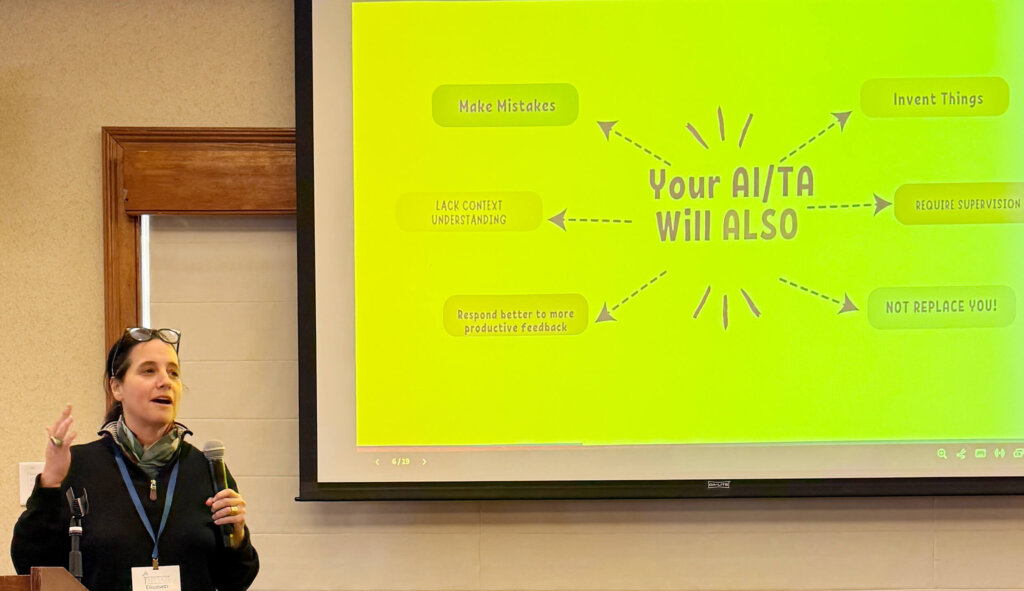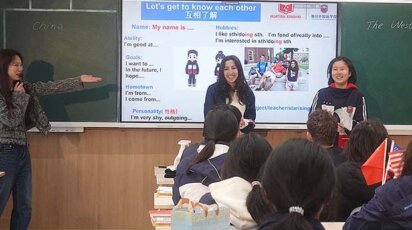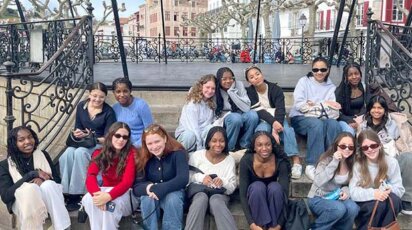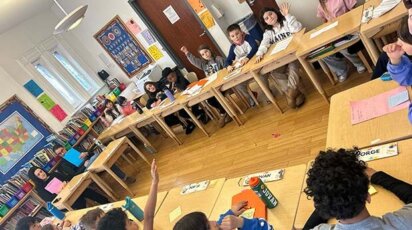News
Faculty Presents at NYSAIS Global Languages and Cultures Conference
“Conferences like this reinvigorate language teachers, providing fresh perspectives and innovative approaches to our daily practice.” – Liz Mansfield, World Languages Department Chair
Sharing insights and strategies among cohorts to enhance the classroom experience for Poly students is a hallmark of the school’s professional development opportunities. The NYSAIS Global Languages and Cultures Conference is an annual gathering for educators dedicated to global languages and cultural studies. It offers a dynamic space to learn from leaders at peer schools, foster professional growth, and participate in leadership-focused workshops. This year’s conference, held from Sunday, January 12, to Tuesday, January 14, at Mohonk, featured World Languages Department Chair Liz Mansfield, and Classical and Modern Philosophy Faculty Terra Windham. Windham delivered an engaging talk, “Optimizing Online Games for Language Learning,” while Mansfield presented her keynote, “AI as Teacher’s Assistant: It’s a Whole New World (Languages Classroom),” exploring the role of AI in language education.
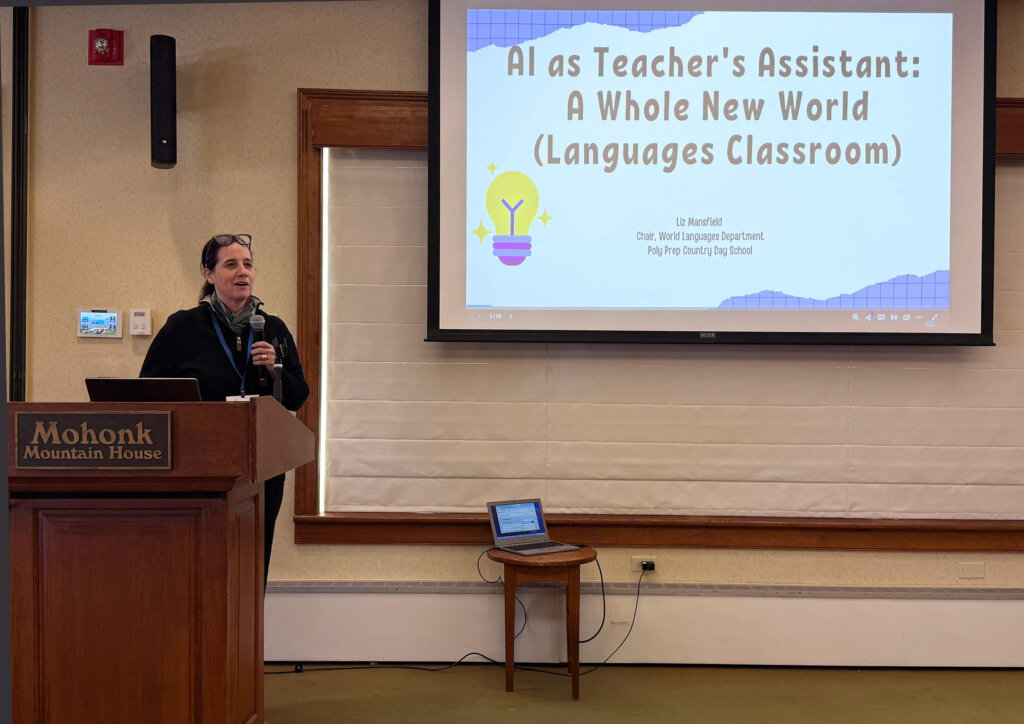
Digital Game Play with a Purpose
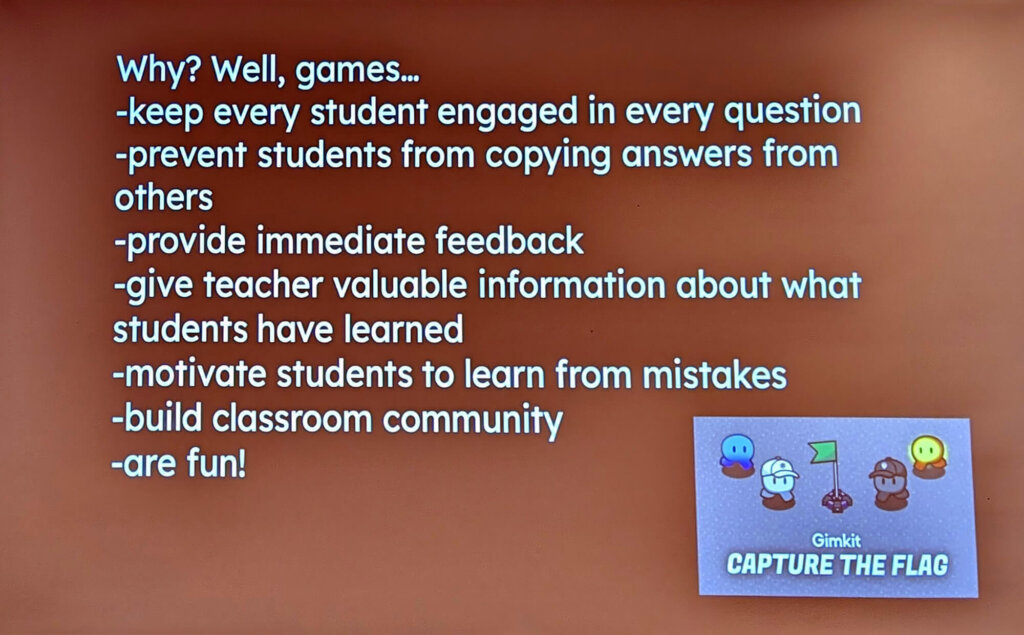
According to the Pew Research Center, 85% of teens in the U.S. play online games. How can teachers leverage this interest in the language classroom? Terra Windham led a presentation for educators of all languages who teach Middle School Grades 5-8 and Upper School Grades 9-12 to do just that. According to a resource shared by the conference, participants learned how to create question sets on game-based learning platforms such as Gimkit, Blooket, and Kahoot that challenge and engage students while effectively reinforcing learning objectives. They explored best practices for using these digital platforms to activate prior knowledge, preview content, and sustain student interest. They also examined how educational games serve as effective tools for revisiting, reviewing, and reinforcing previous learning while seamlessly integrating new material—an essential approach in language instruction. Additionally, Windham highlighted the valuable student-learning data these platforms provide and demonstrated how educators can leverage it to shape future lessons and offer targeted feedback.
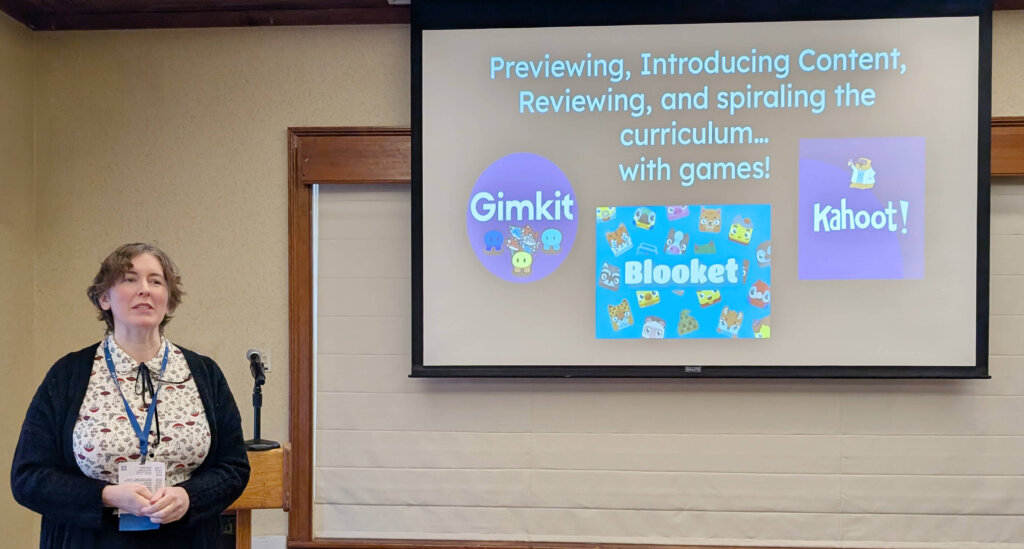
Artificial Intelligence (AI) and the Language Classroom
In her keynote speech, Liz Mansfield led a hands-on workshop exploring how AI can transform the language classroom. Participants examined a week-long teaching cycle where AI tools streamlined lesson planning, preparation, student interactions, and professional responsibilities. They gained practical strategies for integrating AI into daily teaching routines to maximize efficiency and, with guided support, independently explored various AI tools and platforms to enhance lessons and boost student engagement. As educators grapple with utilizing AI in an academic setting, by the end of the workshop, attendees left equipped with the knowledge and skills to make AI a powerful classroom assistant, enabling them to create more effective and engaging language learning experiences.
Mansfield shared that the conference provided invigorating opportunities for language teachers to learn from one another, lending to fresh perspectives. “There is no better professional development than the sharing of best practices among language teachers. We are fortunate to live in a time with an abundance of online resources, from engaging games to AI-driven tools that help generate activities, lesson ideas, and differentiation strategies for students at various proficiency levels. It is an exciting time to be a language teacher, and attending the Mohonk conference opened my eyes to new possibilities both inside and outside my classroom. I attended a presentation on a teacher who integrates the Maker Space into her French class, another on project-based learning as an alternative to traditional assessments, and yet another on the importance of movement and song in language acquisition. Conferences like this reinvigorate language teachers, providing fresh perspectives and innovative approaches to our daily practice. They also offer a valuable opportunity to connect with colleagues from other schools and discuss the challenges we all currently face as we navigate the ever-evolving landscape of our profession.”
